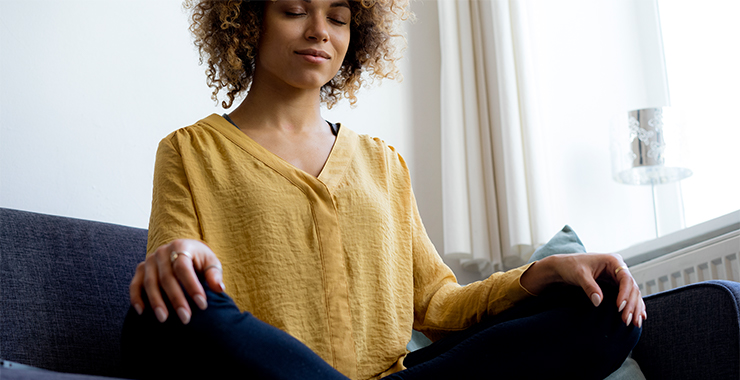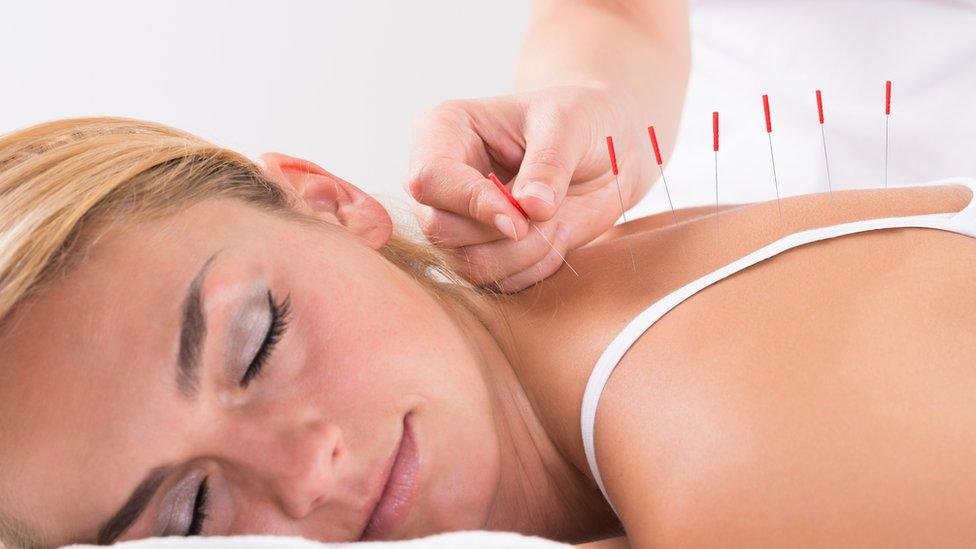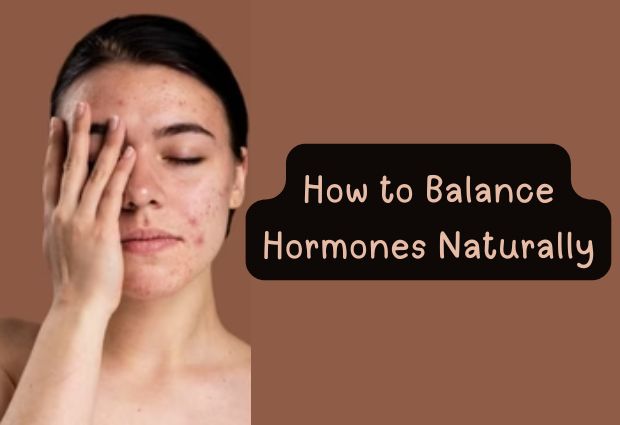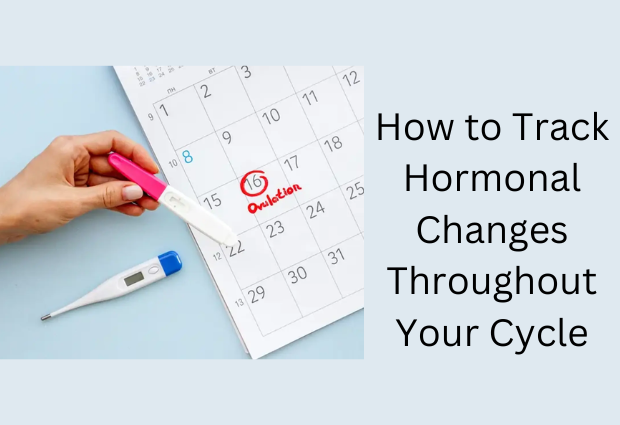-
Dress in Layers
- Wearing lightweight, breathable fabrics like cotton or moisture-wicking materials helps regulate your body temperature.
- Layering allows you to remove clothing when you start feeling warm.
-
Use Fans & Air Conditioning
- Keep a portable fan at work or home to cool down quickly.
- At night, use a ceiling fan or air conditioner to maintain a cool sleeping environment.
-
Avoid Triggers
- Common hot flash triggers include spicy foods, caffeine, alcohol, and hot drinks.
- Keep a journal to track what might be causing your hot flashes and avoid those triggers.
-
Stay Hydrated
- Drinking cold water can help lower your body temperature and relieve hot flashes.
- Carry a water bottle with you to stay cool throughout the day.
-
Practice Deep Breathing
- Slow, controlled breathing (inhaling for 4-5 seconds and exhaling for 5-7 seconds) helps relax your nervous system.
- Practicing deep breathing for 15 minutes daily can reduce the frequency and severity of hot flashes.
-
Exercise Regularly
- Regular physical activity, such as walking, yoga, or swimming, helps balance hormones and reduce stress.
- Avoid intense exercise in warm environments, as it may trigger hot flashes.
-
Maintain a Healthy Weight
- Excess body fat can lead to increased estrogen levels, which may contribute to more severe hot flashes.
- A balanced diet and regular exercise can help manage weight and symptoms.
Home Remedies for Menopause Hot Flashes
-
Herbal Supplements
-
/assets/images/provider/photos/2741035.jpg)
- Black cohosh is a popular supplement for reducing hot flashes, but results vary.
- Red clover contains phytoestrogens, which may help mimic estrogen’s effects.
- Evening primrose oil is believed to help with hormonal balance, though more research is needed.
- Always consult your doctor before trying herbal supplements.
-
Mindfulness & Meditation

- Stress is a common trigger for hot flashes, and relaxation techniques can help.
- Meditation, yoga, and tai chi help regulate stress hormones and reduce hot flashes.
-
Cooling Herbal Teas
-
- Peppermint and chamomile tea have cooling and calming properties.
- Avoid caffeinated teas, as they can trigger hot flashes.
-
Acupuncture
-
- Some studies suggest acupuncture may help reduce the frequency and intensity of hot flashes.
- It works by stimulating points on the body to regulate hormonal imbalances.
-
Cold Showers & Ice Packs
- Taking a cool shower before bed can help prevent night sweats.
- Keeping a cold pack near your bed allows you to cool down quickly if a hot flash occurs.
What Triggers Hot Flashes During Menopause?
-
Dietary Triggers
- Spicy foods (like chili peppers) can increase body temperature.
- Caffeine and alcohol can dilate blood vessels, making hot flashes worse.
- Hot drinks can raise your internal temperature, triggering a flash.
-
Emotional Stress
- Anxiety and high stress levels can trigger hormonal fluctuations.
- Practicing stress management techniques like deep breathing and mindfulness can help.
-
Physical Activity
- Exercising in hot weather or a warm environment can bring on hot flashes.
- Opt for cooler times of the day to work out and stay hydrated.
-
Hot Weather & Warm Rooms
- A warm bedroom or sitting in direct sunlight can overheat your body.
- Use fans, lightweight blankets, and cooling bedding to regulate temperature.
-
Medications & Smoking
- Certain medications, such as antidepressants and blood pressure drugs, may trigger hot flashes.
- Smoking affects estrogen levels and increases the risk of severe hot flashes.
How to Stop Hot Flashes at Night
-
Cool Your Bedroom
- Keep the room temperature low using a fan, air conditioning, or an open window.
- Use cooling pillows and breathable sheets (cotton or bamboo) to prevent overheating.
-
Wear Lightweight Sleepwear
- Choose moisture-wicking pajamas made from breathable materials.
- Avoid heavy blankets and opt for lightweight, layered bedding.
-
Avoid Nighttime Triggers
- Don’t eat spicy foods, caffeine, or alcohol in the evening, as they can worsen night sweats.
- Stay hydrated but avoid excessive fluid intake before bed to prevent waking up frequently.
-
Practice Relaxation Techniques
- Deep breathing, meditation, or stretching before bed can help calm the nervous system.
- Progressive muscle relaxation may improve sleep quality.
-
Consider Medical Options
- If hot flashes disrupt your sleep frequently, talk to a doctor about hormone therapy or prescription medications.
- Some FDA-approved medications (like low-dose paroxetine) can help with severe night sweats.
Effective Treatments for Menopause Hot Flashes
Hot flashes during menopause can be managed through lifestyle changes, natural remedies, and medical treatments. The best approach depends on the severity of symptoms and personal preferences.
1. Lifestyle Changes (First Line of Defense)
Making simple adjustments can significantly reduce hot flash frequency and intensity.
✔ Keep Cool
- Use a fan, air conditioner, or cooling pillow to maintain a lower body temperature.
- Dress in lightweight, breathable fabrics (cotton or moisture-wicking materials).
✔ Avoid Triggers
- Common triggers include spicy foods, caffeine, alcohol, hot beverages, and smoking.
- Keep a journal to track what worsens your symptoms.
✔ Stay Hydrated
- Drink plenty of cold water throughout the day.
- Reduce caffeine and sugary drinks, as they can cause fluctuations in body temperature.
✔ Manage Stress
- Deep breathing, meditation, and yoga help regulate the nervous system.
- Try progressive muscle relaxation before bedtime for better sleep.
✔ Exercise Regularly
- Moderate exercise (like walking, swimming, or yoga) helps balance hormones.
- Avoid high-intensity workouts in warm environments, which may trigger hot flashes.
✔ Maintain a Healthy Weight
- Excess weight may increase hot flash severity.
- A healthy diet and regular physical activity can help manage symptoms.
2. Natural Remedies & Alternative Treatments
Many women find relief using non-medical approaches. While not guaranteed, some may be effective.
Herbal Supplements (Consult a doctor before use!)
- Black cohosh – May help reduce hot flashes and night sweats.
- Red clover – Contains phytoestrogens, which mimic estrogen’s effects.
- Evening primrose oil – Some women report symptom relief, though scientific evidence is limited.
Acupuncture & Mind-Body Techniques
- Some studies suggest acupuncture can help reduce hot flashes.
- Cognitive Behavioral Therapy (CBT) helps manage stress and improve coping strategies.
Cooling Herbal Teas
- Peppermint and chamomile tea can have calming and cooling effects.
3. Medical Treatments (Most Effective for Severe Symptoms)
For women with frequent and intense hot flashes, medications can be highly effective.
A. Hormone Replacement Therapy (HRT) – Most Effective Option
- Estrogen Therapy (ET) – The most effective treatment for hot flashes, available as pills, patches, gels, or creams.
- Estrogen-Progestin Therapy (EPT) – For women who still have a uterus, progestin is added to prevent endometrial cancer.
- Pros: Highly effective for reducing hot flashes, improving sleep, and protecting bone health.
- Cons: Slightly increased risks of blood clots, stroke, and breast cancer (depends on age and health history).
Also read about: Why Women Are More Prone to Chronic Pain Conditions.
Conclusion
Managing hot flashes during menopause requires a combination of lifestyle changes, natural remedies, and medical treatments. Simple strategies like staying cool, avoiding triggers, staying hydrated, and practicing relaxation techniques can help. For moderate symptoms, herbal supplements and non-hormonal medications may provide relief. In severe cases, hormone replacement therapy (HRT) is the most effective option, but alternatives like SSRIs, gabapentin, and the new FDA-approved drug Fezolinetant are available for those who cannot take hormones.
The best approach varies for each woman, so consulting a doctor for personalized treatment is recommended.


:max_bytes(150000):strip_icc()/GettyImages-972694172-0fe243667c8f4b6788fe949dd55f302e.jpg)


/assets/images/provider/photos/2741035.jpg)





Pingback: How to Manage Mood Swings During Menopause.
Pingback: Hair Care Tips for Hormonal Hair Loss in Women